Section 475 BNSS : Restriction on powers of remission or commutation in certain Case .
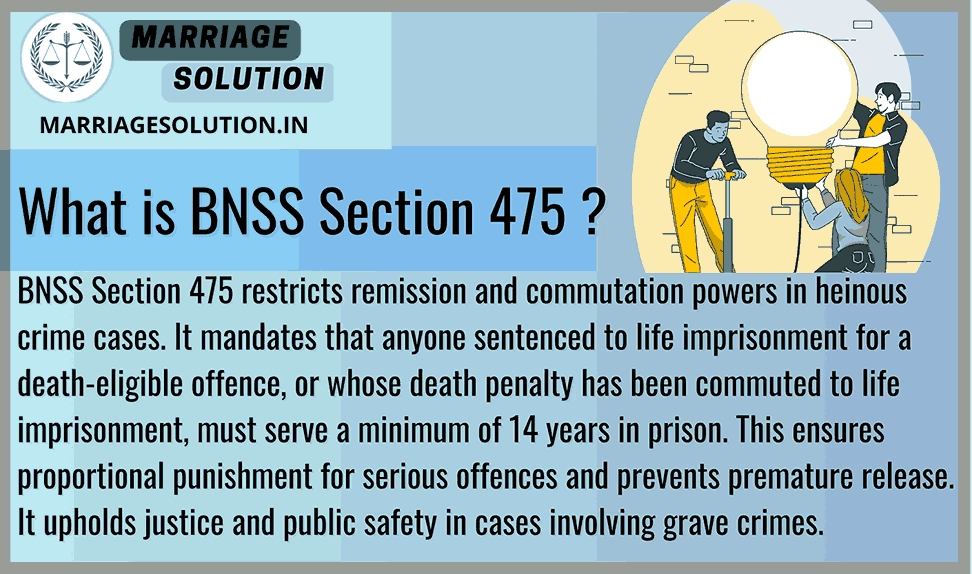
Section 475 BNSS restricts remission and commutation powers, requiring life imprisonment convicts in death-eligible offences to serve a mandatory 14-year term, ensuring justice and public safety.
Section 474 BNSS : Government’s Power to Reduce Sentences .
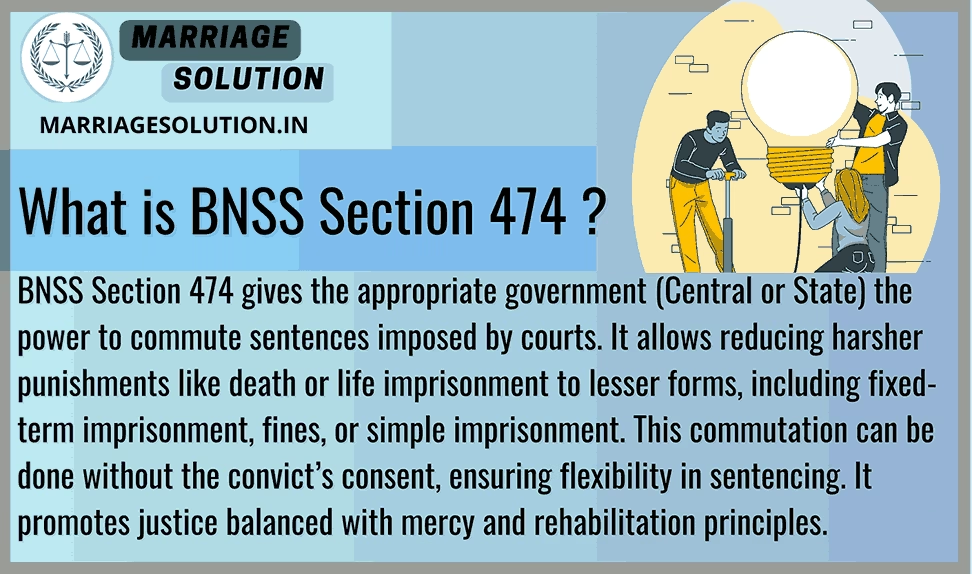
Section 474 BNNSS empowers the government to reduce punishments, including death and life sentences, without the convict’s consent, reflecting mercy, flexibility, and reformative justice in India’s legal system.
Section 473 BNSS : Power to Suspend or Remit Sentences Explained .
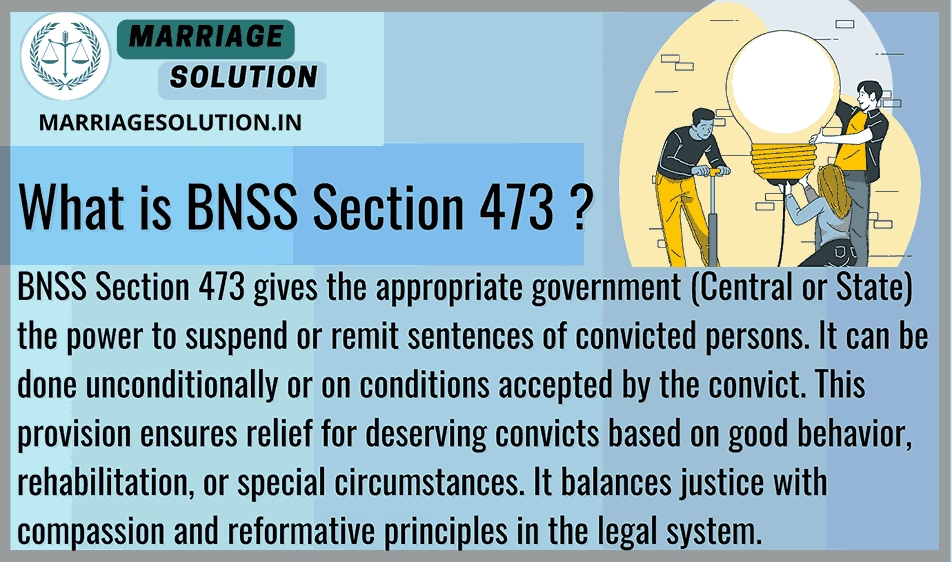
Section 473 BNSS empowers the Central or State Government to suspend or remit sentences, ensuring justice with compassion through judicial consultation, conditional relief, and reformative principles.
Section 472 BNSS : Mercy Petition in Death Sentence Cases Explained .
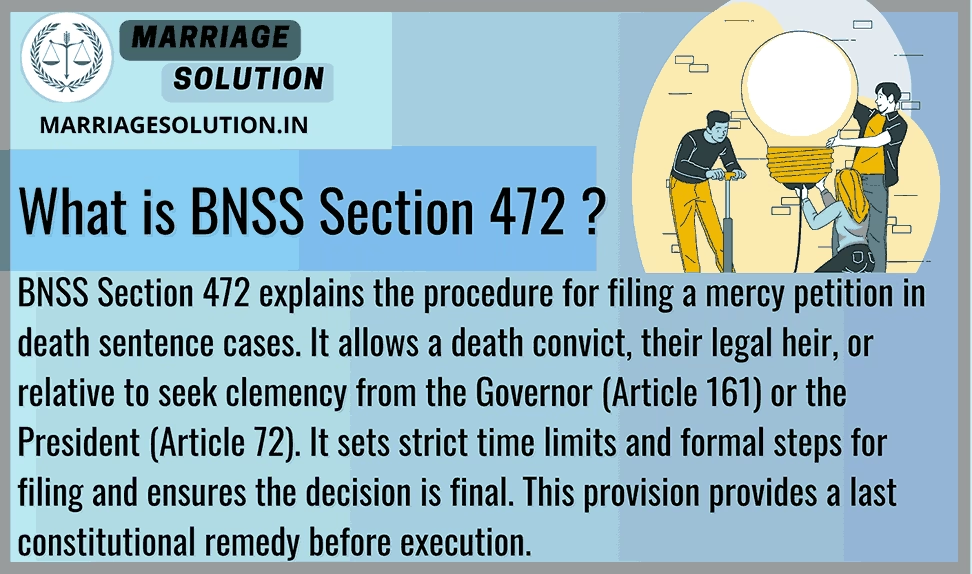
Section 472 BNSS provides a clear process for filing mercy petitions in death penalty cases, ensuring convicts or their families can seek constitutional clemency from the Governor or President before execution.
Section 471 BNSS : Recovery of Monetary Orders as Fines Explained .
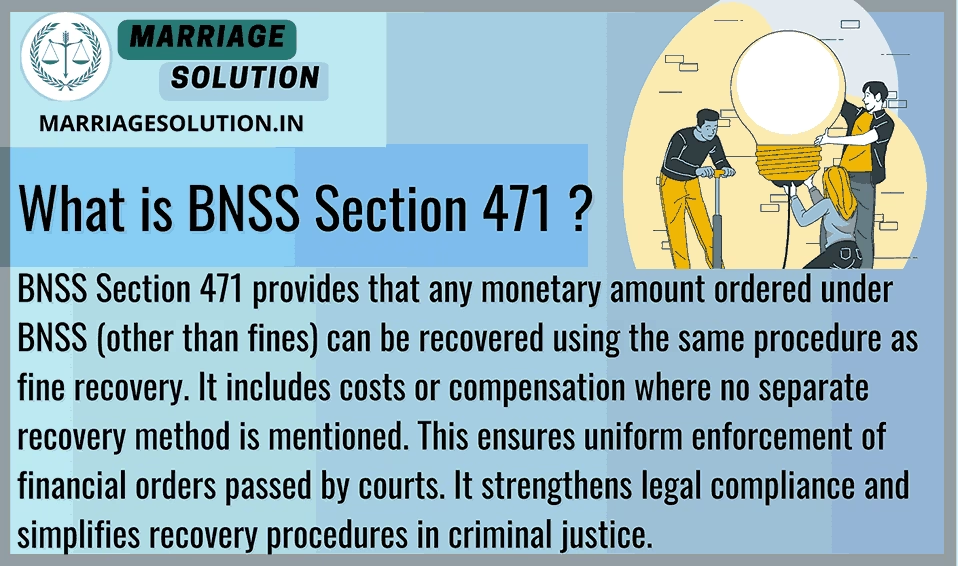
Section 471 BNSS ensures that monetary payments like compensation or costs ordered under BNSS can be recovered as fines, simplifying enforcement, ensuring compliance, and promoting fairness in justice.
Section 470 BNSS : Return of Warrant After Sentence Execution Explained.
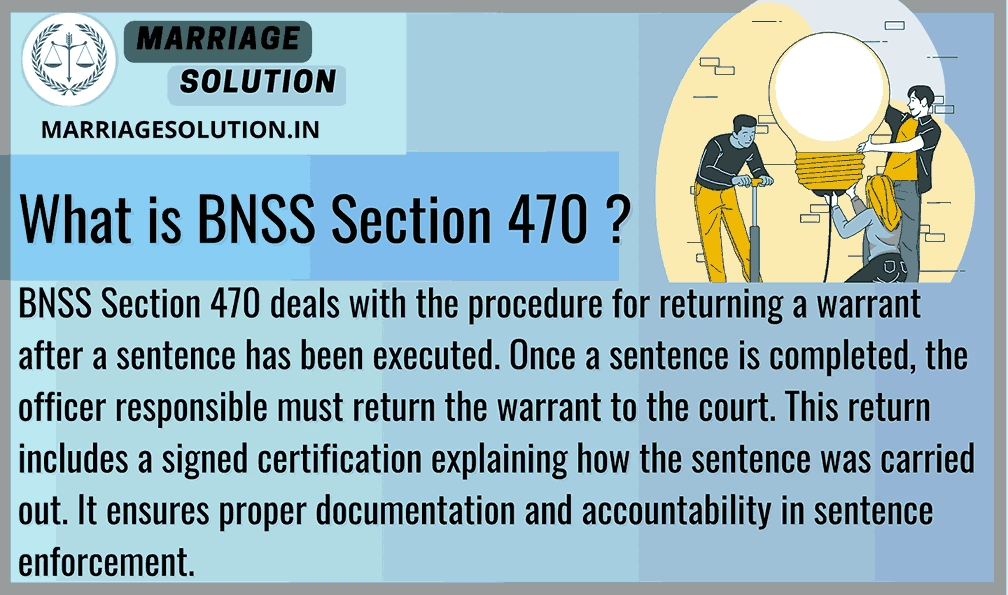
Section 470 BNSS : Mandates that after completing a sentence, the executing officer must return the warrant with certification to the court, ensuring transparency, accountability, and proper legal record-keeping.
Section 469 BNSS : Saving Provision and Its Importance Explained .
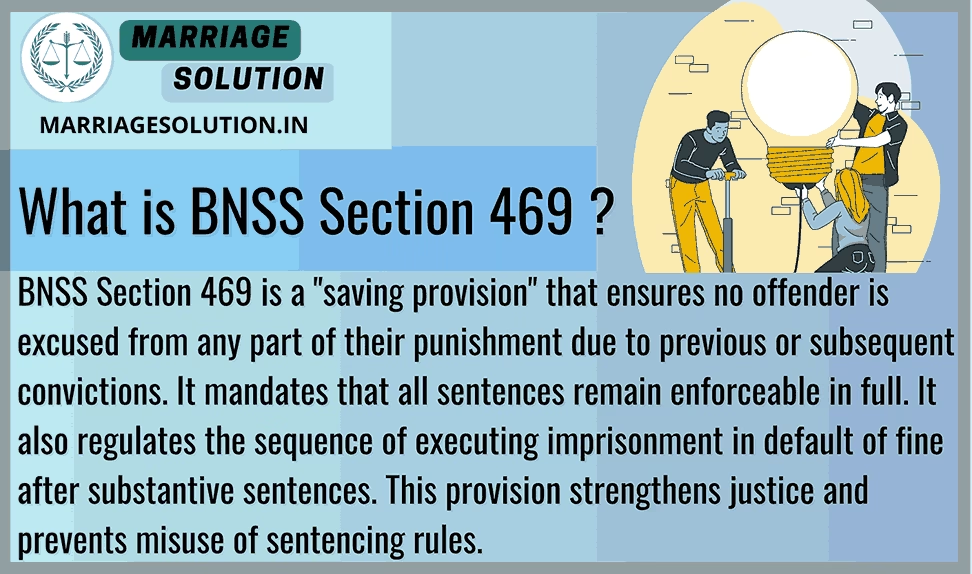
Section 469 BNSS : Saving Clause and Full Enforcement of Punishments .
